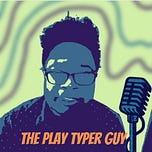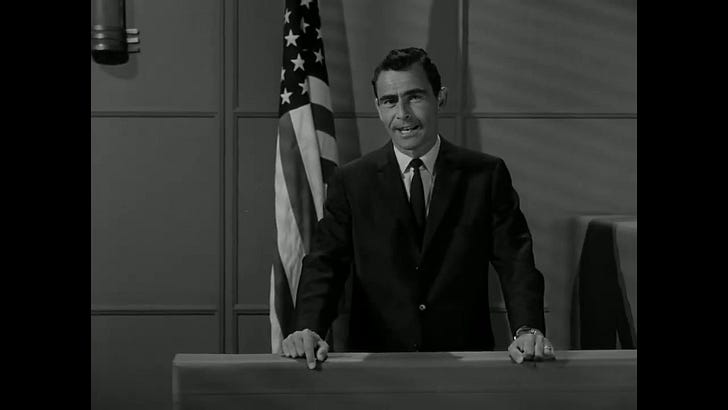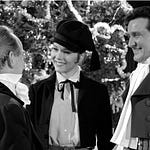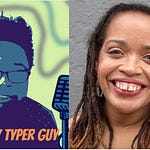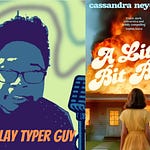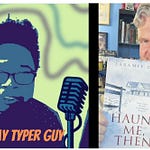The incredibly talented Eliza Jane Schneider is an actor, singer, and dialect coach, who set out to travel the country (in an ambulance) and eventually the rest of the English speaking world collecting sounds of dialects from everywhere during the pre-internet days, which she assumed would take a month. But 30 years later, she’s still at it!
I'm a big fan of Eliza's going back to her work on Beakman's World. You’ve probably heard her on South Park, Batman: The Brave and the Bold, and a long list of video games. Portland, Oregon, residents got to see her on the stage last year in the Portland Playhouse production of Amelie.
Eliza’s received critical acclaim for her one-woman show, Freedom of Speech, which she performed in Portland last year on January 6. The date was intentional. If there is an actual “American dream,” it’s true diversity and understanding, the very things that Donald Trump’s MAGA movement opposes.
Four years after the violent insurrection and attack on the Capitol, Trump is returning to power, almost unchallenged. However, I think Schneider’s overall message in Freedom of Speech remains even more relevant. She plays 34 different characters in her solo show, and they reflect real people with unique perspectives. Maybe some of those people voted for Trump or didn’t vote at all. Maybe the Bible Belt resident with the Confederate flag voted for Kamala Harris. We can’t say for sure until we get to know them. Understanding others doesn’t mean blanket approval for their actions. It just keeps us from living in a fantasy world.
Transcribed excerpt from our discussion:
ELIZA: So, January 6th was chosen because I am very keen on redirecting the conversation away from the vocal minority of billionaire followers. What kind of revolution do we really need? What kind of change do the American people really want? [It] manifests in what was really beautifully described by one of the people interviewed in San Francisco, who was himself experiencing houselessness. “Otherism,” he said. “Otherism. People play these otherism games, you know. It’s not prejudice. It’s otherism.”
And I just love that phrase because it really accurately and aptly describes this sense of there’s always an us and them. There’s always teams. And one of the things that drives me nuts about an election year and about the election process itself is that kind of football game that it all boils down to at the end where it’s like, “Oh, our team is in the lead. That’s coming up red. That’s coming up blue .. It’s diminished to this game, you know, and it’s really not a game.
It's really not a game to the people who are affected by these buzzword statistics, but when you put a face and a voice to those statistics like domestic violence, addiction, veterans, racism, all the things that are affecting the people on the streets, and that creates this sense of us versus them, of this intangible them somehow wielding the money and making the rules.
I think that giving voice and putting a face to those human beings, nuanced, conflicting within themselves is something that Jane Wagner and Lily Tomlin effectively did in Search for Signs of Intelligent Life in the Universe.
You know, this play has been distilled over the course of the last 30 years through various incarnations, and initially, I was intent on providing a very Studs Terkel, Anna Deavere Smith-esque kind of smattering of individuals in and of themselves.
I didn’t want to hold anybody’s hand and take them through the journey with my own perspective. I just wanted to show the pictures in the book.
I ended up in the next incarnation of the play being convinced by my director, Sal Romeo, at the time to include my own perspective. And I now believe that that's really valid because I think that this isn't who this person is overall, omnisciently.
This is who this person was in the five minutes or hour that they were speaking to me, some random chick in an ambulance that drove through their town and asked them what was up.


